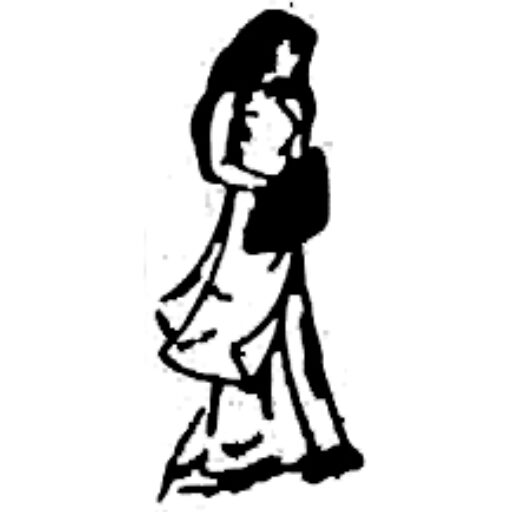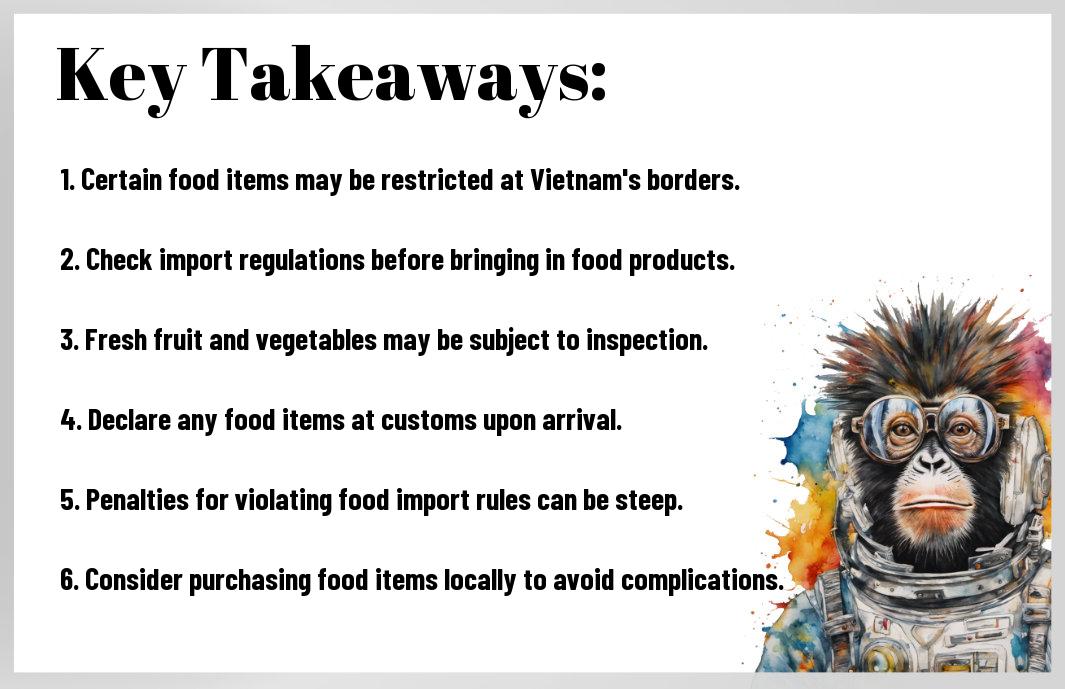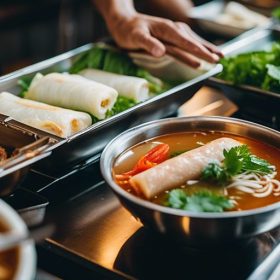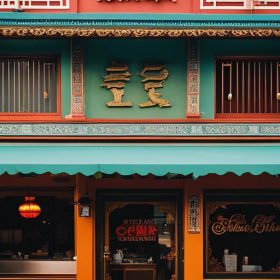Are you planning a trip to Vietnam and wondering whether you can bring food into the country? While Vietnam is known for its delicious cuisine, there are certain restrictions and regulations in place when it comes to bringing food items into the country. It is important to be aware of these rules to avoid any potential issues at the customs. Bringing certain types of food into Vietnam can pose a risk to the environment and public health, so it is essential to understand what you can and cannot bring into the country. In this blog post, we will provide you with all the essential information about bringing food into Vietnam, including prohibited items, restrictions, and guidelines to follow to ensure a smooth entry into the country. Whether you’re a food lover or simply want to bring snacks from home, it is crucial to be well-informed about the regulations to avoid any inconvenience during your trip.
Key Takeaways:
- General guidelines: Travelers are allowed to bring a reasonable amount of food into Vietnam for personal consumption.
- Prohibited items: Certain food items, such as fresh fruits and vegetables, plants, and meat products, are generally prohibited from being brought into Vietnam.
- Customs regulations: It is important to familiarize yourself with Vietnam’s customs regulations regarding the importation of food items to avoid any potential issues at the border.
- Packaging and labeling: Any food items being brought into Vietnam should be properly packaged and labeled to comply with local regulations and to ensure the safety of the products.
- Declaration process: Travelers should declare any food items they are bringing into Vietnam on their customs declaration form upon arrival in the country.
- Quarantine requirements: Some food items may be subject to quarantine requirements upon arrival in Vietnam, so it is important to check with the relevant authorities beforehand.
- Local cuisine: While bringing some of your own food into Vietnam is permissible, it is also highly recommended to explore and sample the diverse and delicious local cuisine during your visit.
Understanding Vietnam’s Import Laws
While visiting or moving to Vietnam, it’s essential to understand the country’s import laws to avoid any legal issues or fines. Vietnam has strict regulations concerning what you can bring into the country, particularly when it comes to food items. Being aware of the import laws will help you plan your trip or relocation smoothly without any hassles at the customs.
General Food Import Rules
When it comes to bringing food into Vietnam, there are specific rules you should be aware of. You are allowed to bring a reasonable quantity of food for personal consumption, but you must declare it at the customs checkpoint. It’s important to note that all food items must be properly packaged and sealed to prevent any contamination during travel. Additionally, perishable goods may be subject to inspection by the local authorities, so it’s best to check with the Vietnamese embassy or consulate in your country to get the most updated information on what is allowed.
Prohibited and Restricted Items
There are certain food items that are prohibited or restricted from being brought into Vietnam. For example, fresh fruits, dairy products, and raw meat are generally not permitted due to the potential risk of spreading diseases or pests. It’s crucial that you familiarize yourself with the specific items that are not allowed to be brought into the country to avoid any legal complications. Be sure to check the latest guidelines from the Vietnam Ministry of Agriculture and Rural Development to ensure you comply with the regulations.
Traveller Concerns and Solutions
For travellers, the idea of bringing food into Vietnam can raise various concerns. You may be worried about the consequences of bringing prohibited items, such as fines or confiscation. There is also the concern of accidentally bringing in food that could pose a risk to Vietnam’s agriculture or environment. However, there are solutions and guidelines in place to ensure a smooth experience for bringing food into the country. By understanding the regulations and taking the necessary precautions, you can navigate the process with confidence.
Frequently Asked Questions
If you are wondering about the specific food items that are allowed or prohibited, you can refer to the official list provided by Vietnam’s Ministry of Agriculture and Rural Development. It is important to note that the regulations can change, so it’s essential to stay informed before your travel date. Additionally, if you are unsure about a particular item, it’s best to declare it upon arrival and seek guidance from customs officials.
How to Check if Your Food is Permissible
When bringing food into Vietnam, you can check if your items are permissible by researching the specific regulations on the official government websites or contacting the Vietnamese embassy or consulate. It’s crucial to be thorough in your research to avoid any potential issues at the border. Additionally, ensure that your food items are properly packaged and labeled according to the requirements to expedite the customs process.
Process of Bringing Food into Vietnam
Despite Vietnam’s strict rules on bringing food into the country, it is possible to do so if you follow the correct procedure. Failure to adhere to these rules can result in confiscation of your food items and potential fines.
Declaration and Customs
When you arrive in Vietnam, it is important to declare any food items you are carrying to the customs officers. You will be required to fill out a customs declaration form, and it is critical that you accurately and honestly disclose all food products in your possession. Failure to do so can result in serious consequences, including confiscation of the items, fines, and even legal action.
Handling Confiscated Items
If your food items are confiscated by Vietnamese customs, it is important to remain calm and respectful. Attempting to argue with or bribe the officials will only worsen the situation. Depending on the severity of the violation, you may be issued a warning, fined, or face further legal consequences. It is essential to familiarize yourself with the specific rules and regulations regarding the importation of food into Vietnam to avoid such an outcome.
Cultural Considerations
After understanding the regulations and requirements for bringing food into Vietnam, you should also consider the cultural aspects of food importation. Vietnam has a rich and diverse culinary culture, and food holds a significant place in Vietnamese customs and traditions. It is important to respect and understand these cultural considerations when bringing food into the country.
Respect for Vietnamese Customs
When bringing food into Vietnam, it is crucial to show respect for Vietnamese customs and traditions. Vietnamese people have a deep appreciation for their local cuisine and take great pride in their traditional dishes. It is important to be mindful of this and to avoid bringing in large quantities of outside food that may compete with or overshadow the local offerings. Show respect for the local customs by embracing and enjoying the Vietnamese cuisine during your visit. This not only helps in preserving the food culture but also fosters a positive cultural exchange.
Alternative Options to Bringing Food
Instead of bringing food with you, consider exploring the local markets and tasting the authentic Vietnamese flavors. You may find that the variety and quality of locally sourced foods will far exceed anything you could have brought from home. This is also a great way to support the local economy and experience the true essence of Vietnamese cuisine. Additionally, consider respectful ways to connect with the local community, such as participating in cooking classes or dining at family-owned establishments. This not only enriches your travel experience but also contributes positively to the destination you are visiting.
Can I Bring Food Into Vietnam
From above information, you can see that bringing food into Vietnam is generally allowed, but there are specific regulations and restrictions that you need to be aware of. It is important to research and understand the rules surrounding food importation before attempting to bring any items into the country. By familiarizing yourself with the guidelines, you can ensure that your travel experience is smooth and hassle-free, avoiding any potential issues with customs or border control. Remember to always check the latest information before you travel, as regulations and requirements can change over time. Your cooperation with the regulations will help protect the environment and agriculture of the country. Thank you for your attention and enjoy your travels in Vietnam.
FAQ
Q: Can I Bring Food Into Vietnam?
A: Yes, you are allowed to bring certain types of food into Vietnam. However, there are restrictions on certain items, so it’s important to check with the Vietnamese customs authorities before traveling.
Q: What Types of Food Can I Bring Into Vietnam?
A: Non-perishable, commercially-packaged food such as snacks, canned goods, and certain types of processed foods are generally allowed. However, fresh fruits, vegetables, meat, and dairy products are often restricted.
Q: Are There Any Specific Restrictions on Bringing Food Into Vietnam?
A: Yes, there are specific restrictions on bringing certain types of food into Vietnam. Perishable items, live animals, and meat products from countries affected by certain diseases are typically prohibited.
Q: Should I Declare Food Items When Entering Vietnam?
A: Yes, it is important to declare any food items that you are bringing into Vietnam. Failure to do so could result in fines or confiscation of the items.
Q: Can I Bring Homemade or Handmade Food Products Into Vietnam?
A: It is generally not recommended to bring homemade or handmade food products into Vietnam. These items may not meet the country’s food safety and import regulations.
Q: What Should I Do If I Am Unsure About Bringing Food Into Vietnam?
A: If you are unsure about whether you can bring a specific food item into Vietnam, it is best to contact the Vietnamese customs authorities for guidance. They can provide you with the most up-to-date information and regulations.
Q: What Are the Penalties for Violating Food Import Regulations in Vietnam?
A: Violating food import regulations in Vietnam can result in fines, confiscation of the prohibited items, and potentially legal consequences. It is important to familiarize yourself with the regulations and comply with them to avoid any issues.

Cuong Nguyen is a talented writer and experienced waitress at Vietnampalace.net, a renowned Vietnamese restaurant that offers an extensive menu of authentic Vietnamese cuisine. With a background in the competition of Vietnamese cuisine, Cuong brings a wealth of knowledge and expertise to the dining experience. From delicious pho dishes to fresh spring rolls, Cuong ensures that every meal is made with the freshest ingredients and authentic flavors.With exceptional service and a friendly atmosphere, Cuong takes pride in providing a memorable dining experience for every customer.
Whether you’re a vegetarian looking for options or a meat lover craving the flavors of traditional Vietnamese dishes, Cuong guarantees a delightful culinary adventure. So, visit Vietnampalace.net and let Cuong guide you through the tantalizing world of Vietnamese cuisine.



